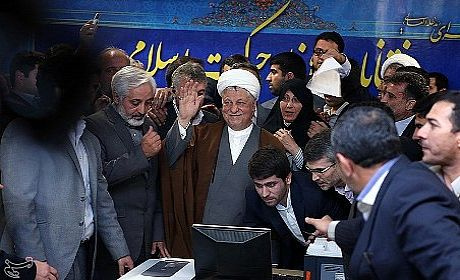Iran Will Regain Its Instrumental Role in the Region

What is the status of the president in the foreign policy of the Islamic Republic? Some believe that considering the constitution and the laws ruling the country’s macro-policies, the president does not have an important role and cannot be effective in the macro foreign policies of the country. Do you also accept this analysis?
No. I believe that the foreign policy of the Islamic Republic of Iran can be divided into the different periods of presidency. We can divide the foreign policy of the Islamic Republic into the period of the interim government, the war period, the construction period, the reform period and the period of Mr. Ahmadinejad’s government. This shows how effective the role of the president, as the second highest authority in the structure of the Islamic Republic and the person who is elected by the people as the head of the executive body, is in Iran’s foreign policy. Whenever a presidential election is held in the final days of one president’s tenure and a new president is elected, the ruling discourse on foreign policy changes. Even our relations with other countries of the world are different in different periods. In my opinion, the presidential election is totally influential in the foreign policy of the Islamic Republic and this is known to the countries whose relations with the Islamic Republic are of significance.
How would you evaluate the status of foreign policy in the upcoming presidential election?
In my opinion, we are faced with a serious and influential triangle in the upcoming election. Perhaps this election would be more different from all the previous elections. We are faced with an effective triangle in this election, the base of which is the voters, the number of whom are about 50 million eligible Iranians inside and outside the country.
The other side of this triangle is related to the status of the political system and those who are effective in the election. At the head of this triangle are the policies of the Supreme Leader. In his New Year’s address, he invited all political inclinations to participate in the election and stressed that he himself has one vote whose content nobody is aware of.
The third side of the election, in my opinion, which is very different this time than in previous periods, are the impacts of the international atmosphere on the election. By pursuing radical policies in foreign policy, the present government has created tension in our relations with other countries. This tension was caused by taking positions like those against the Holocaust or the issue of confrontation with Israel and its elimination or our nuclear positions and led to penalizing policies against the Islamic Republic. This incident was unprecedented and five UN resolutions were issued against Iran during this period. These resolutions were accompanied by unilateral sanctions imposed by the US, Europe, and their allies. Thus, a trend has been formed which has had serious impacts on Iran’s domestic issues. Naturally, it is expected that the candidates address the issues which are important for the people.
You mentioned the issue of sanctions and that the people expect to know what the next president is going to do in this regard. But some believe that the president cannot change the present trend and, for example, Mr. Jannati has stated that the slogan of re-establishment of relations with the US by the candidates is just a joke and the president is not authorized to decide on this matter. What is your opinion in this regard?
Decisions with regard to the macro-policies of the country are to be made between the president and the Supreme Leader and the president and the parliament and the High Council of National Security. The Friday prayer leader is not authorized to make such statements. The fact that the history of the foreign relations of the Islamic Republic is divided into five different periods indicates that the president is very effective in the issue of foreign policy. Notice that the leader of the Islamic Republic has been the same person after the end of the war but three different presidents have been elected since then; the government of construction, the government of reform and the government of Ahmadinejad. Each of these presidents pursued three different foreign policies. During the construction period, Mr. Hashemi Rafsanjani followed the policy of détente in his foreign policy and critical dialogue was on the agenda. Relations with the Persian Gulf littoral states, especially Saudi Arabia, were rapidly improved.
When Mr. Khatami was elected as president, he proposed the idea of dialogue among civilizations and led the foreign policy towards a direction that critical dialogue was turned into constructive dialogue. At the same time while the US had imposed sanctions against Iran, the French company Total invested 4 billion dollars in Assaluyeh. Hence, Mr. Khatami’s foreign policy led to economic flourishment and diplomacy.
Unfortunately, this trend changed with the incorrect behaviors and policies of the present government. Today our country is faced with the worst possible situation in foreign policy and the economy. The worst kind of relations have been established between Iran and the countries of the region due to the foreign policies of Mr. Ahmadinejad. Due to Mr. Ahmadinejad’s imprudent policies, and despite numerous visits of foreign countries, no achievement has been made for the country.
Therefore, there is the expectation in society that the presidential candidates express their views about relations with the US, Iran’s presence in the region and its relations with the regional countries, especially the issue of Syria and Iran’s policies with regard to the nuclear dossier. The problems caused by the sanctions for our country are not the issues about which the people are indifferent.

